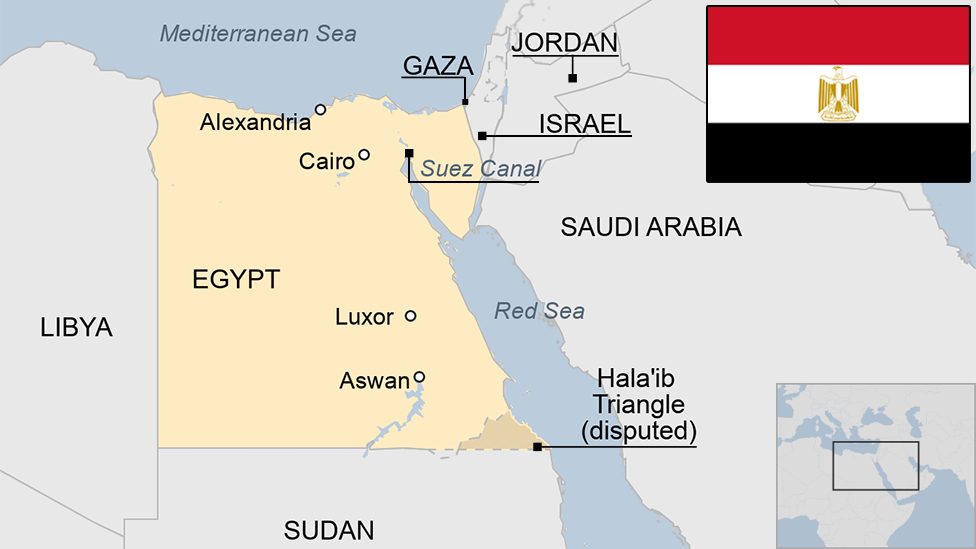Israel country profile
- Published
This page is no longer being updated. It was last updated on 13 October 2023
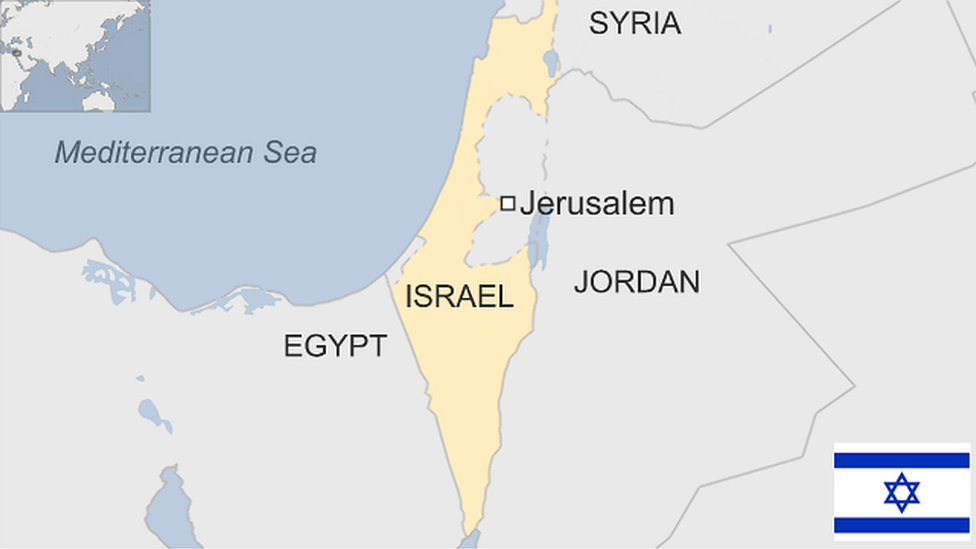
A country on the eastern shore of the Mediterranean Sea, Israel is the only state in the world with a majority Jewish population.
It has been locked in conflict with the Palestinians and its Arab neighbours over ownership of land considered holy by many Jews, Christians and Muslims since its creation in 1948.
The division of the former British Mandate of Palestine and the creation of the State of Israel in the years after the end of World War Two was the culmination of the Zionist movement, whose aim was a homeland for Jews hitherto scattered all over the world.
Security concerns over the conflict with the Palestinians are a constant factor in a political environment marked by volatile coalition governments. Israel faces hostility from much of the Arab region, and the US provides crucial diplomatic and military support. Some of the borders remain in dispute.
Read more country profiles, external - Profiles by BBC Monitoring, external
STATE OF ISRAEL: FACTS
Capital: Jerusalem (proclaimed, limited international recognition)
Area: 20,770 sq km (pre-1967 borders)
Population: 9.6 million
Languages: Hebrew, plus Arabic
Life expectancy: 80 years (men) 84 years (women)
LEADERS
President: Isaac Herzog
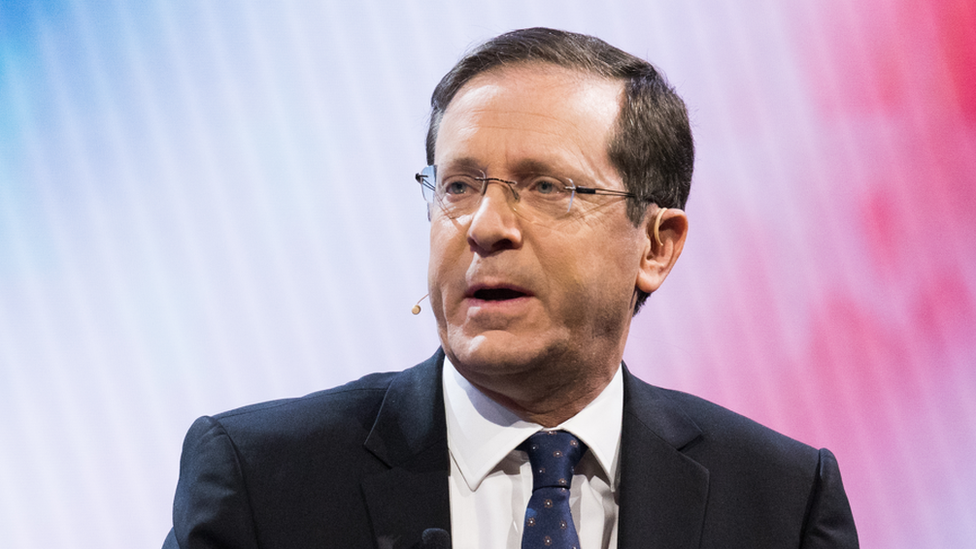
The presidency is a largely ceremonial post and notionally above party politics, but individual presidents have used a combination of their personal prestige and the authority of their office to make interventions in national debates.
Parliament elected Isaac Herzog to the post in 2021. He is the son of a former president, and led the centre-left Labour Party in 2013-2017. He also served in various government posts between 2005 and 2011.
Prime Minister: Benjamin Netanyahu
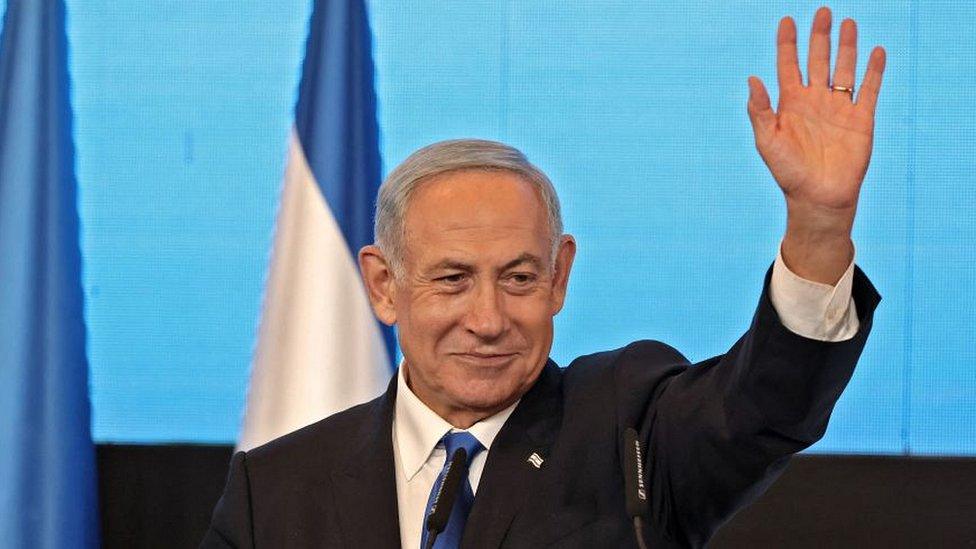
Benjamin Netanyahu, who is chairman of the right-wing Likud party, has been Israel's prime minister since December 2022, leading a government seen as the most right-wing in Israel's history. He was previously prime minister from 1996 to 1999 and again from 2009 to 2021, making him the longest-serving prime minister in Israel's history.
Mr Netanyahu's unrivalled success owes much to the image he has cultivated as the person who can best keep Israel safe from hostile forces in the Middle East.
He has taken a tough line towards the Palestinians, putting security concerns at the top of any talk of peace, and long warned of existential danger to Israel from Iran.
But hanging over his political achievements is the cloud of a criminal trial for alleged bribery, fraud and breach of trust - charges he fiercely denies.
MEDIA

Israel's press and broadcasters are many and varied, reflecting differences in language, political viewpoint and religious outlook.
TV is the leading medium and commercial networks top the ratings. Public broadcasting saw a major change in 2017, when the Israel Broadcasting Authority (IBA) ended more than 50 years of operations and was replaced by the Israeli Public Broadcasting Corporation (IPBC).
BACKGROUND
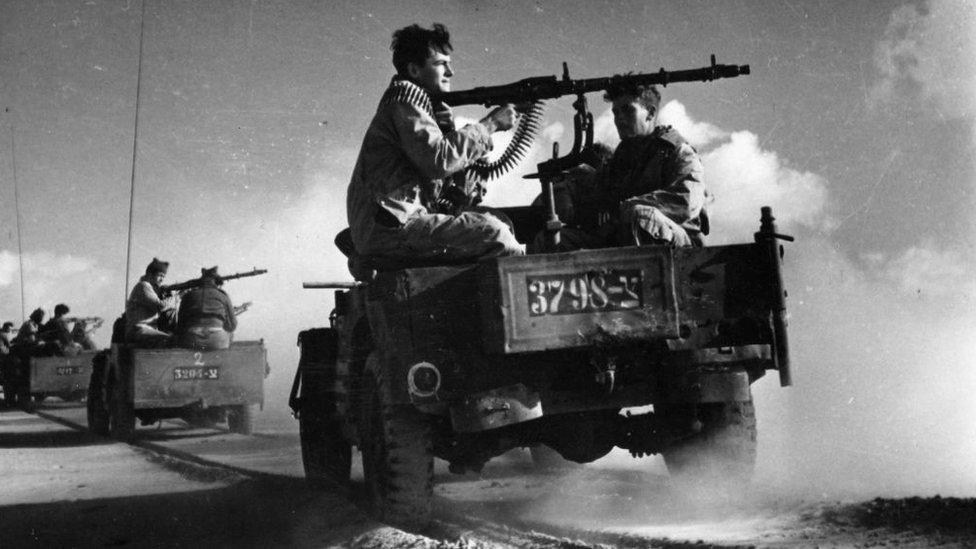
Israel's 1948 war of independence ended in a series of uneasy armistices
After the Nazi Holocaust, pressure grew for the international recognition of a Jewish state, and in 1948 Israel declared its independence following a UN vote to partition Palestine.
Much of the history of the area since that time has been one of conflict between Israel on one side and Palestinians and Israel's Arab neighbours, on the other.
Hundreds of thousands of Palestinian Arabs were displaced in the fighting in 1948, during which Israel's Arab neighbours came to the aid of the Arab Higher Committee in Palestine. The fighting ended in a series of uneasy armistices.

A Jewish man takes part in a ceremony in Jerusalem
Israel has developed from an agrarian state run along collectivist lines into a hi-tech economy in the past 70 years. It has absorbed Jewish immigrants from Europe, the rest of the Middle East, North America and, most recently, the former Soviet Union and Ethiopia along the way.
Its political life has nonetheless been dominated by the conflict with its Arab neighbours, including full-scale regional wars in 1948, 1967 and 1973, and many smaller-scale conflicts including the 1956 invasion of Egypt and the Lebanon wars of 1982 and 2006.

Relations with the Palestinians have been a major factor in foreign and security policy. The Palestinians in the West Bank and eastern Jerusalem have lived under Israeli occupation since 1967.
The settlements that Israel has built in the West Bank are home to 500,000 people and are deemed to be illegal under international law, although Israel disputes this.
Israel evacuated its settlers from the Gaza Strip in 2005 and withdrew its forces, ending almost four decades of military presence inside Gaza. Israel continues to control Gaza's air space and coastal approaches, on the basis of which the international community considers Gaza still to be occupied territory.
After the militant Islamic group Hamas reinforced its power in Gaza in June 2007, Israel intensified its economic blockade of the Strip, along with Egypt, with multiple offensives against militants in Gaza in order to halt cross-border rocket attacks.
In 1979 Egypt and Israel signed a peace agreement, but it wasn't until the early 1990s, after years of an uprising known as the intifada, that a peace process began with the Palestinians. Despite the handover of Gaza and parts of the West Bank to Palestinian control, a final agreement has yet to be reached.
The main stumbling blocks include the status of Jerusalem, the fate of Palestinian refugees and their descendants, Jewish settlements, and attacks by Palestinian armed groups.
In 2020, increasing regional cooperation between Israel and some Arab League countries led to Israel and the UAE, together with fellow Gulf state Bahrain, signing the US-brokered Abraham Accords on normalising relations.
Beginning in the 2010s, the regional security situation has shifted away from the previous Arab-Israeli conflict towards a proxy conflict between Iran and Israel, alongside direct confrontation Iran during Syria's civil war.
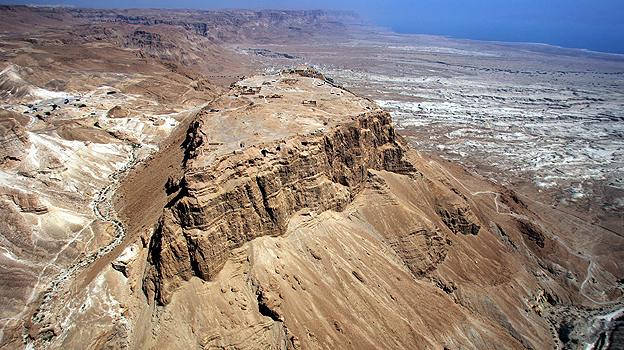
The ancient hilltop fortress of Masada is one of many historical sites to be found in Israel
Related topics
- Published10 January
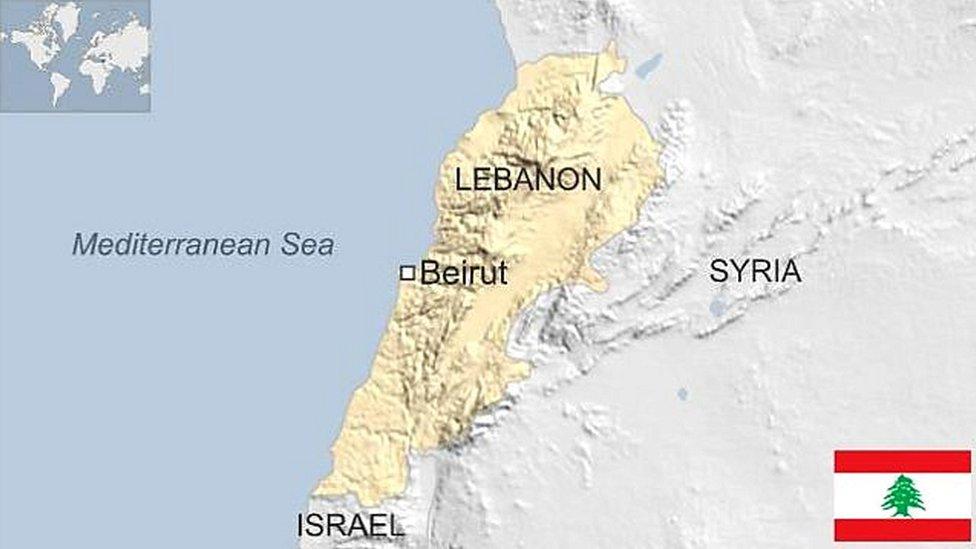
- Published29 August 2023
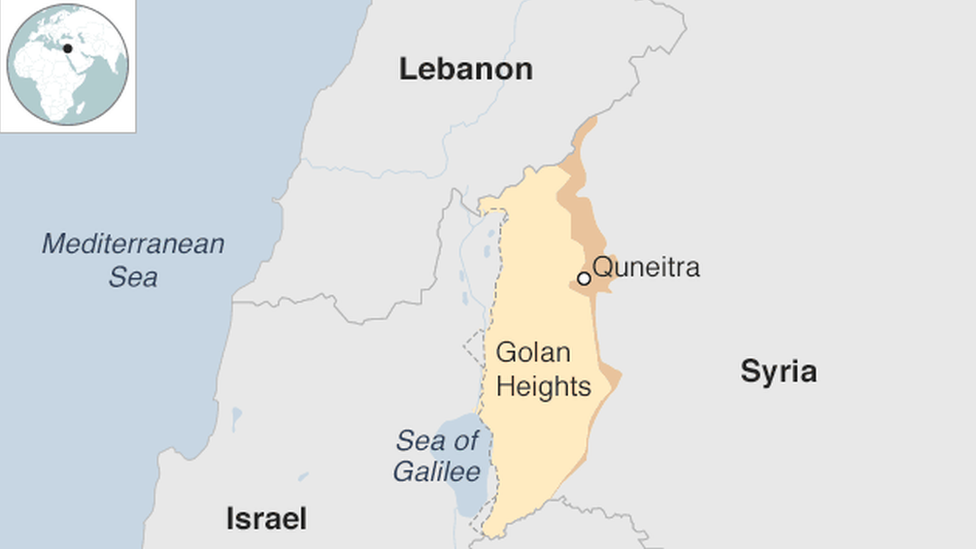
- Published7 January

- Published26 June 2023
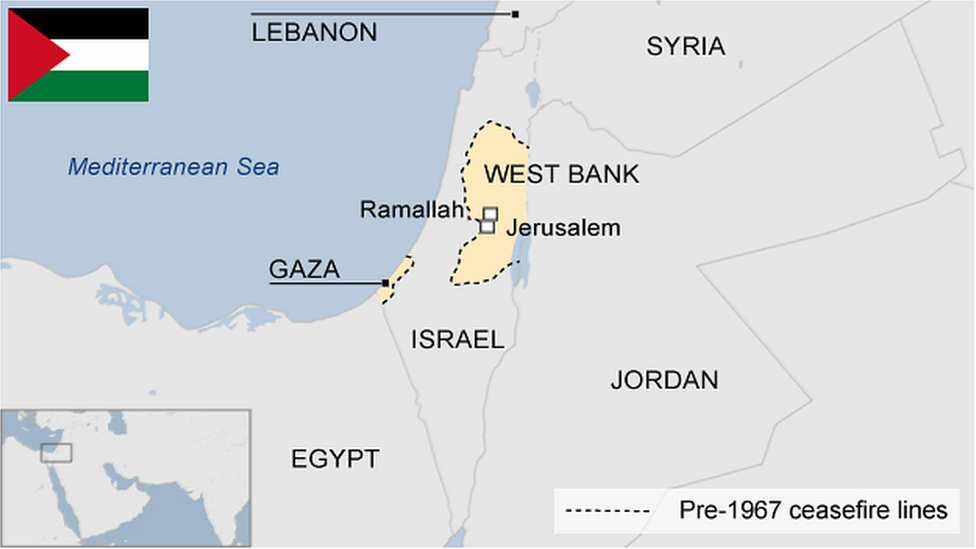
- Published19 April 2023
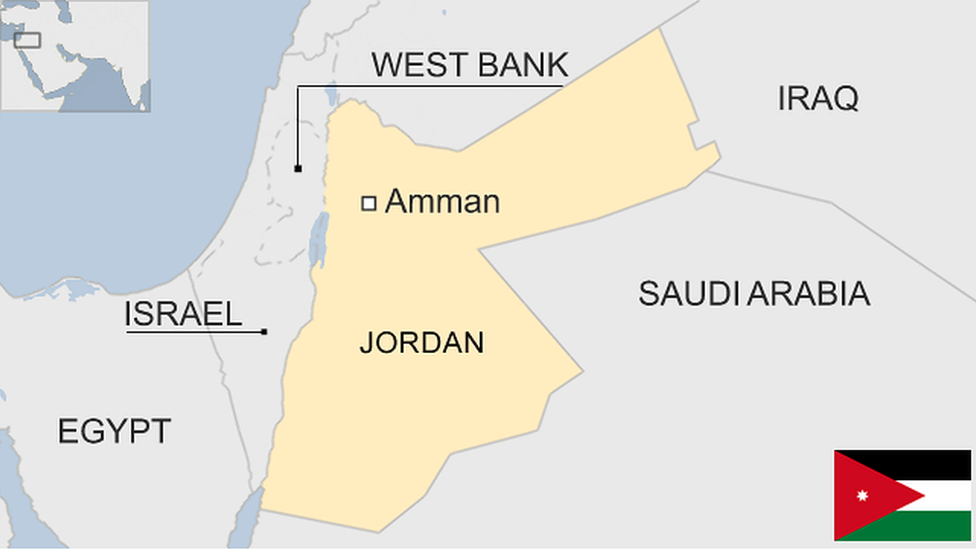
- Published29 August 2023
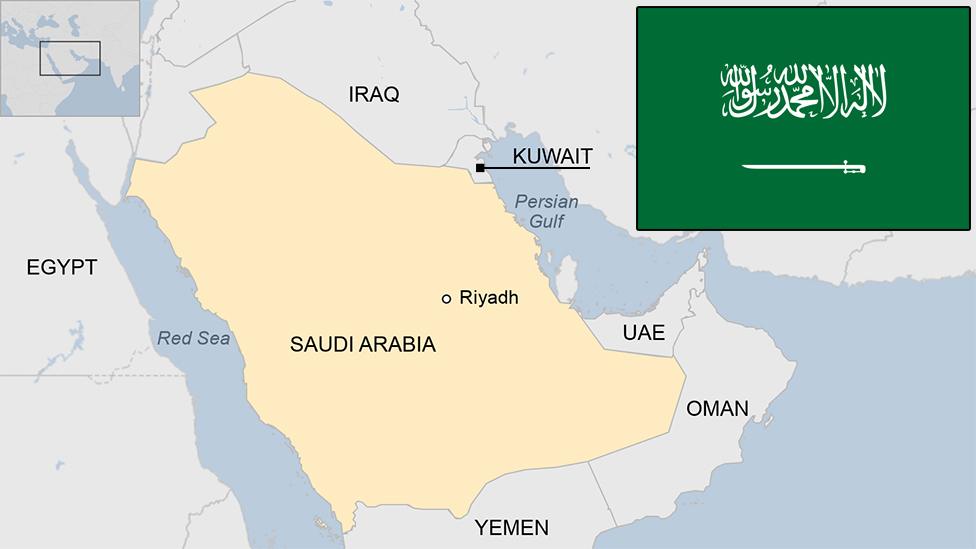
- Published2 January 2024
